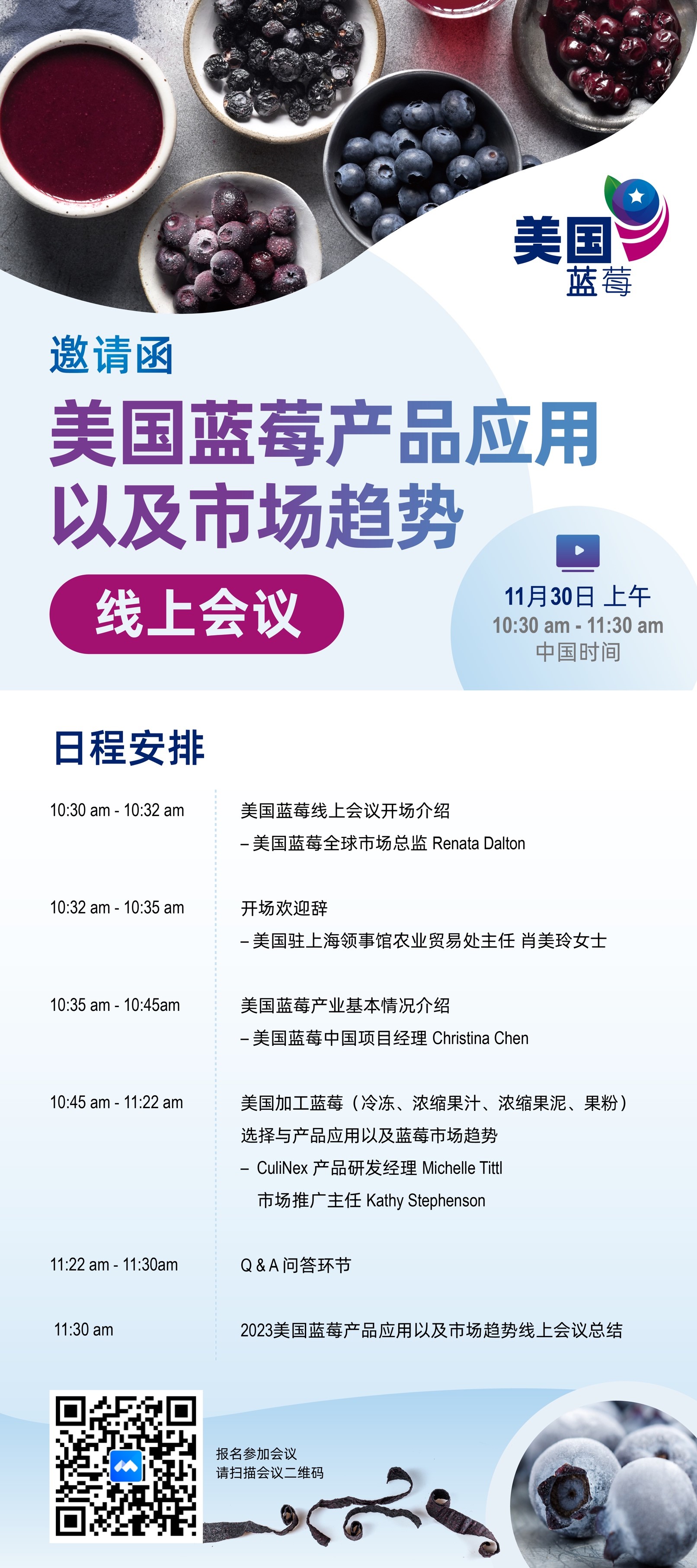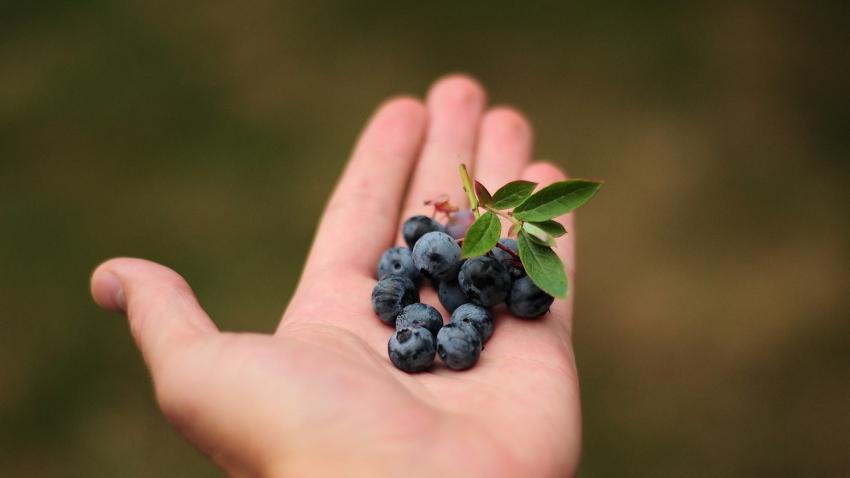You are here
Back to topUSHBC Webinar: Expanding Blueberry Applications in China

This content is sponsored by the U.S. Highbush Blueberry Council, a California-based, grower-driven organization that aims to be the global leader in knowledge, programs and resources supporting the blueberry industry.
In recent years, a myriad of innovative blueberry-based products, including beverages, dairy items and snacks, have consistently graced supermarket retail shelves, captivating consumers with unique and enticing taste experiences. As the health-conscious trend gains momentum among young consumers, who consider factors such as ingredients and calories when selecting their food, natural ingredients such as blueberries are increasingly being embraced.
The U.S. Highbush Blueberry Council is scheduled to host an online informational session on Nov. 30 for potential buyers from the Chinese food and beverage sectors, with the goal of providing attendees with insights into U.S. blueberries. Michelle Tittl, product development manager, and Kathy Stephenson, marketing director, both from leading U.S. food development consulting company CuliNEX, will introduce the characteristics and applications of various processed blueberry products from the United States, while also discussing current market trends for blueberry products.
CuliNEX aims to provide its clients with innovative solutions for food development and research across the entire spectrum, from the inception of product ideas to the final stages of commercialization. Boasting over 250 years of industry experience, CuliNEX serves a prestigious clientele that includes Starbucks, Nestlé, Whole Foods and other prominent names in the food sector.
Processed blueberry products from the United States entered the Chinese market before fresh blueberries. In recent years, blueberry exports to China have primarily consisted of frozen and dried blueberries. In addition, the U.S. blueberry sector also exports a substantial quantity of frozen blueberries, blueberry concentrate, blueberry puree, blueberry jam, blueberry powder and other products. These items find application in the processing of desserts, beverages, baked goods, cereals, dairy products, energy bars and various other foods, even including pet food.
In comparison to fresh blueberries, which have a relatively short shelf life, processed blueberry products not only ensure a stable supply throughout the year but also substantially cut labor costs by being more amenable to mechanical harvesting. Advanced technologies, including rapid low-temperature freezing, drying and dehydrating processes, play a crucial role in preserving the nutritional content of the fruit. This provides clear advantages for both the food processing and catering sectors.
All individuals with an interest in U.S. blueberries are invited to scan the QR code below and leave a message stating “加工蓝莓线上会议”/“webinar for U.S. processed blueberries” to participate in the informational session.


Images: U.S. Highbush Blueberry Council
















Add new comment